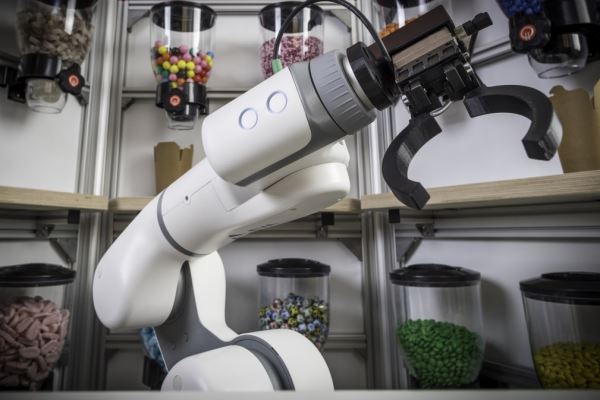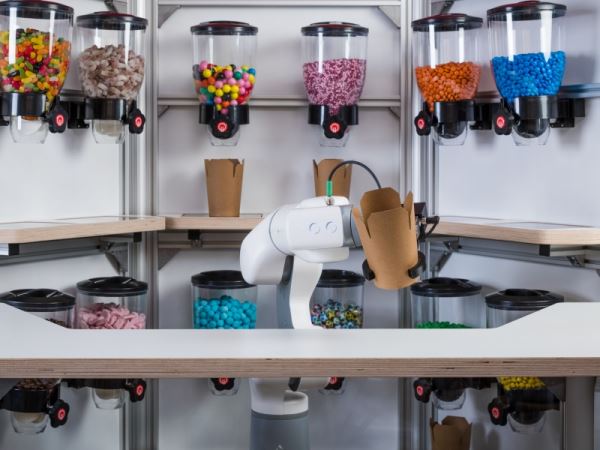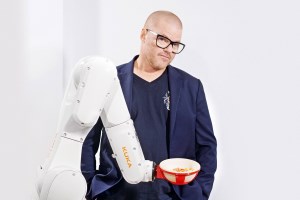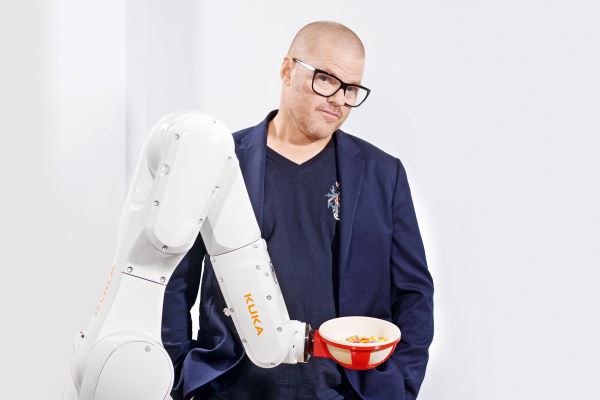With the global pandemic still escalating, calls for robotised commercial kitchens are rising.
Restaurateurs and food service providers across the globe are recognising the health benefits of less contact between staff and customers.
Given the current need for social distancing, a robotic kitchen could be the answer. It would allow restaurants to reopen faster and food to flow quicker.
In a recent interview with UK Business Matters magazine, Barney Wragg, CEO and co-founder of Karakuri explains how chefs and the industry are hoping to merge robotics within their workspace.
And so far, the feedback from top chefs like Heston Blumenthal has been most positive.
Blumenthal, a UK-based chef, who is famous for his scientific approach to cooking, has been working as an advisor on Karakuri’s kitchen robotics project.
“At first, I was actually quite nervous thinking they (chefs) would be against the idea, however we’ve found the exact opposite to be true,” Wragg says.
“Having an automated system in place can achieve all of the jobs that chefs don’t want to do, actually giving them more time to focus on the artisanal side of being creative.”
After raising £7 million in seed funding, Karakuri, a London-based food tech startup, has developed a robotics system to automate commercial kitchen operations.
Karakuri’s unique IP combines robotics, machine learning, optics and sensors was originally designed to automate the assembly of ready-to-eat meals in the fast, casual or food-to-go sectors.
But the tech can also be used in a la carte restaurants, buffets, canteens and hospitality kitchens.
How robots improve food consistency
After much research, Wragg found many restaurants have an issue with consistency. They might serve the same two dishes, but they may contain different levels of ingredients as different chefs have different interpretations.
And when it comes to consistency robots are very hard to beat.
Also, with Karakuri’s robots, food makers can prepare meals to the exact requirement of each customer.
The robots can customise and personalise meals for consumers following specific dietary plans or with food intolerances.
The tech can be used in the assembly of all boxed meals.
Wragg says many restaurant kitchen spaces are small with people working in close proximity to achieve maximum efficiency.
Optimising human workflow
“Robotics can optimise human workflow so you can have lower density of people around,” he says.
“It’s also very hygienic – the food is separated from people – it’s very good for allergies, uniquely contained or dispensed with no-one to contaminate it.”
Wragg says the COVID-19 crisis has created a huge opportunity for his company.
“But like anyone in the hospitality industry, we don’t know in a year’s time what the operating model of a school canteen or service restaurant is going to be,” he says.
“Meantime, we’re just trying to go as quickly as we can and provide as much data to people as possible.
“Everyone wants to see hospitality running again and trying to find creative solutions to doing that is a priority for everybody.”
Reducing staff costs
Wragg says his business is driven by two economic factors within the hospitality industry.
“We can’t really do anything about the fixed costs of rent, insurances etc but the two major factors of operation are: input costs and staff.
“We can help manage both of those by managing what order patterns look like and understanding what the volume should be.”
Wragg says the feedback he gets from big food chains is not a desire to cut costs by reducing staff numbers – it’s more about reducing staff “churn.”
“We’ve got one chain that we work with where it’s not unusual for them to be recruiting between five and six times a year for every role they have – the turnover is phenomenal.”
This in turn has a huge cost on recruiting, training, managing and putting people through those processes to get them there.
Reducing mundane tasks
“It’s extremely time consuming and extremely costly,” says Wragg. “It also has a negative impact on quality and the overall working environment.”
After conducting a staff survey, the company identified all the jobs people don’t like in a commercial kitchen.
Karakuri’s brief was simple: “Help us to reduce those tasks.”
By eliminating repetitive and tedious jobs companies are more likely to maintain staff levels – saving significant costs with long-term employees, says Wragg.
Karakuri’s seed investment round was led by high-tech online only retailer Ocado, known for the use of robotics in its distribution warehouses. Other investors include Hoxton Ventures, firstminute capital and Taylor Brothers.
The funding is being used to further develop Karakuri’s technology, strengthen its IP base and expand its team for global growth.


